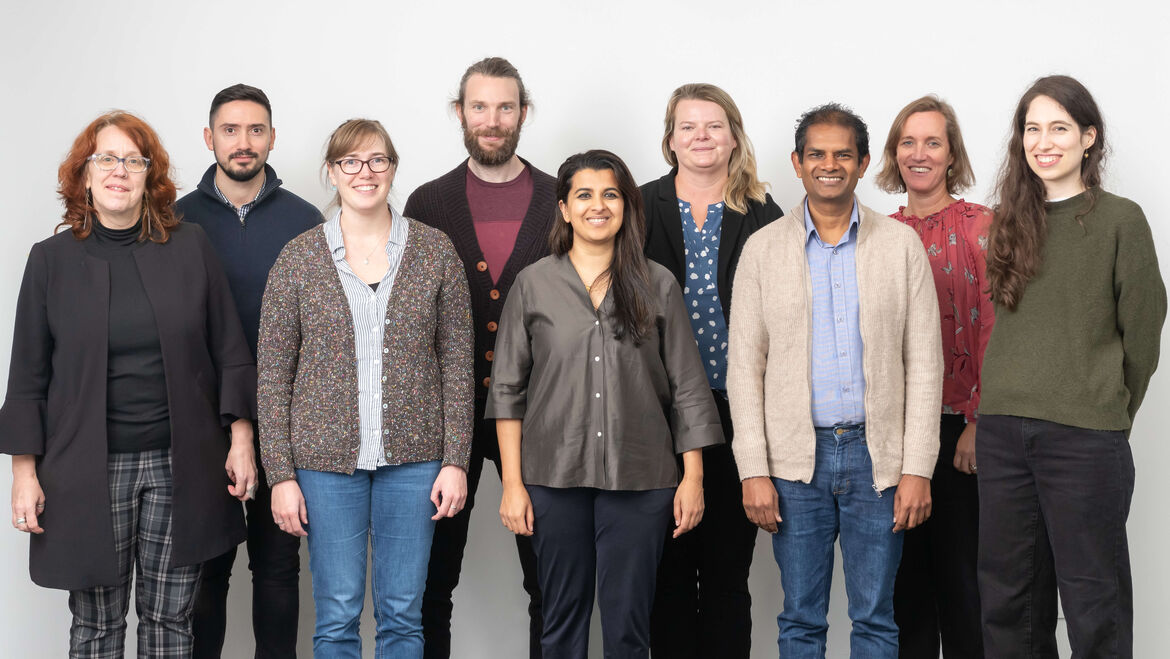-
Working Groups
- Climate Change and Health Intervention
- Climate Change, Nutrition and Health
- Climate Change, Migration and Health
- Heidelberg Planetary Health Hub (Hei-Planet)
- Climate-smart Health Systems
- Design and implementation research in global health
- Digital Global Health
- Disease Control in Disadvantaged Populations
- Epidemiology and Biostatistics
- Epidemiology of Transition
- FAIR and ethical data and sample reuse
- Field Epidemiology Research in German Public Health
- Global Child Health
- Global Health and Economics Research Group
- Global Health Diagnostics
- Global Health Policies and Systems
- Health Economics and Health Financing
- Implementation research for prevention and disease control
- Injury Epidemiology and Prevention
- Mathematical Modelling of Infectious Diseases
- Non-communicable disease (NCD) in LMICs
- Non-Communicable Diseases (NCDs) Implementation Research
- Oral Health
- Planetary Child Health
- Science Communication
- Vector Borne Diseases and Geo Health
Climate Change and Health Intervention Working Group

Our Climate Change and Health Intervention Group at HIGH conducts research climate change adaptation tools and mitigation strategies for vulnerable populations. This focus leverages the interdisciplinary approach the Group employs, with scientists and communities working closely together to deploy, test and analyze cutting edge, low-cost technologies in the field and in the lab.
Mission
We test novel climate change adaptation/mitigation interventions using experimental and quasi-experimental methods, to show how they affect health, environmental and economic outcomes in populations.
Projects
Cool Roofs Nouna HDSS - Climate Change and Health in SSA

Our cool roofs project quantifies the impacts of sunlight-reflecting roof coatings on human health in the global south in communities long overlooked in this kind of research, yet highly vulnerable to the effects of climate change. Funded by DFG.
FEAST

Technology-based solutions can play a very important role in supporting the transition to healthier and more sustainable dietary behaviours at the micro and meso-levels of food systems. The goal of WP5 is to design novel technology-based solutions, scale solutions and evaluate the causal impact of existing technologies for promoting the transitions to healthier and more sustainable diets, particularly in vulnerable groups. These solutions will be tested for both individuals and communities. Funded by Horizon Europe.
Heat Exposure and Response

Understanding how temperature impacts health problems is key for preventing heat-related deaths and illnesses, particularly in high-risk groups such as the elderly, children and those who are pregnant. We apply randomized control trials and other analyses to assess climate-sensitive mortality and morbidity outcomes among vulnerable populations in the global south.
IDAlert

We investigate the health co-benefits and unintended consequences of climate adaptation and mitigation policies by simulating the impacts of these policies outside of the health sector on projected health risks of vector-borne diseases in the context of intervention scenarios. Funded by Horizon Europe.
REFLECT

We leverage our expertise in executing housing-health intervention trials to conduct a global multi-centre study of cool-roof effectiveness on health (environmental and economic) outcomes in four urban LMICs – Ouagadougou, Burkina Faso (sub-Saharan Africa); Ahmedabad, India (Asia); Niue (Oceania); and Sonora, Mexico (Latin America). Our trials will test the reproducibility of results globally and quantify whether cool roofs are an effective passive home cooling intervention with beneficial health effects for vulnerable populations. Funded by Wellcome Trust.
Publications
Group Members
-
Working Groups
- Climate Change and Health Intervention
- Climate Change, Nutrition and Health
- Climate Change, Migration and Health
- Heidelberg Planetary Health Hub (Hei-Planet)
- Climate-smart Health Systems
- Design and implementation research in global health
- Digital Global Health
- Disease Control in Disadvantaged Populations
- Epidemiology and Biostatistics
- Epidemiology of Transition
- FAIR and ethical data and sample reuse
- Field Epidemiology Research in German Public Health
- Global Child Health
- Global Health and Economics Research Group
- Global Health Diagnostics
- Global Health Policies and Systems
- Health Economics and Health Financing
- Implementation research for prevention and disease control
- Injury Epidemiology and Prevention
- Mathematical Modelling of Infectious Diseases
- Non-communicable disease (NCD) in LMICs
- Non-Communicable Diseases (NCDs) Implementation Research
- Oral Health
- Planetary Child Health
- Science Communication
- Vector Borne Diseases and Geo Health
